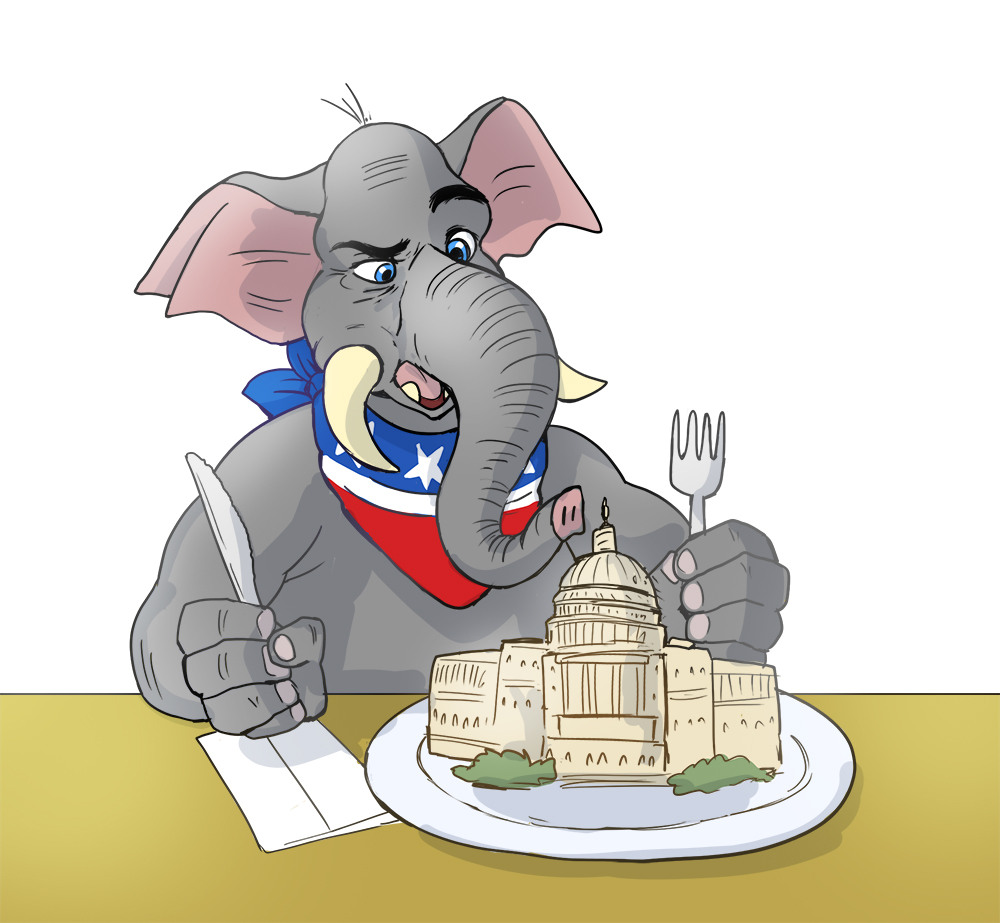Jonathan Friedland: Republicans should be consistent in their small-government principles

(Kelly Brennan/Daily Bruin)
By Jonathan Friedland
Aug. 14, 2016 10:29 p.m.
Time and time again, the Republican party has contradicted its own small-government philosophy.
When most Republicans look at their party, they envision smaller government, which supposedly means fewer regulations and more individual liberty. Unless, of course, you’re attempting to marry someone of the same gender, looking to end your own life through assisted suicide or are thinking of aborting your fetus, in which case, Republicans have no problem encroaching upon your personal freedom.
The Republican Party’s small-government proponents have misguided voters in the last few elections. Social conservatives fail to understand that advocating for smaller government should be done universally because of the greater individual liberty given to people, instead of selectively approving matters where the government is permitted to encroach on civil rights.
For instance, the 2016 GOP platform says traditional marriage is the backbone for American society because of its roots stemming from Biblical values. Most Republicans conveniently skim past this section, which favors granting Congress supplemental power and jurisdiction to reign in a group’s individual liberties. The decision is certainly hypocritical when one considers how Republicans are allowing religion to seep into their political beliefs, contradicting their admiration for small-government principles.
In a similar effort to court religious Americans who somehow believe that a cluster of cells is a human being whose life cannot be infringed upon, the Republican platform asserts that the Fourteenth Amendment’s life protections apply to unborn Americans, and thus the government has an obligation to protect their lives. However, the party chooses not to see how a restrictive abortion law would be a government intrusion into citizens’ individual liberties.
For example, Texas prides itself on marginal taxation and minimal government intervention into people’s lives, unless it involves abortions. Before the Supreme Court’s ruling in Whole Woman’s Health v. Hellerstedt that overturned the multitude of regulations, Texas passed 288 abortion restrictions leading to the shutdown of half the abortion clinics in the state, forcing people to drive hundreds of miles for an abortion. The state’s parameters were designated an “undue burden” by the Supreme Court, a sharp contradiction to Texas hypocritically priding itself on presenting no unnecessary government regulations to its residents.
The “right to life” and the subsequent choices that follow, which the party backs tirelessly on anti-abortion issues, should include a person’s right to end their own life, most prominently in the case of a critical illness. The party’s platform states: “We oppose euthanasia and assisted suicide, which endanger especially those on the margins of society.” In essence, the party of small government wants the government to prevent a sane and coherent terminally-ill patient, who has the approval of a close family member, from putting an end to his or her suffering.
Once again, the social conservatives’ far too fervent moral beliefs cause the party to lose its Libertarian message of smaller government and fewer laws dictating citizens’ lives, consequently delaying the nation from attaining any tangible change on its social construct.
The problem extends to economics too. Part of the small-government message was lost in the 2008 General Motors and Chrysler government bailout, for which the taxpayers have yet to receive nine billion dollars back from the auto companies. Former Republican President George W. Bush started the bailout, which President Barack Obama continued in his first term.
However, the companies failed for a reason: Their cars were and still are mediocre at best. In the 2009 Consumer Reports’ reliability rankings, seven out of the ten lowest rated car models were American, while the top ten car models were all foreign.
Instead, the federal government should have let GM and Chrysler declare bankruptcy without any financial assistance. Their liquidation would have opened up space for startup car companies to explore the market. Some companies would fall flat, but others would excel enough to actually compete with foreign companies like Toyota, Hyundai and BMW.
Republicans should have demonstrated their alleged party values by rejecting the auto bailout, instead of starting it. America desperately needed innovative car companies that could sustain the environmental and consumer needs of the world. The government’s intervention prevented future economic growth, leading to the redevelopment of the stagnant American car industry, whose coddling effects are still felt today.
Overall, the Republican Party needs to follow an economically Libertarian philosophy, stop impeding on citizens’ lifestyles that differ from their own and stop their small-government hypocrisy.


